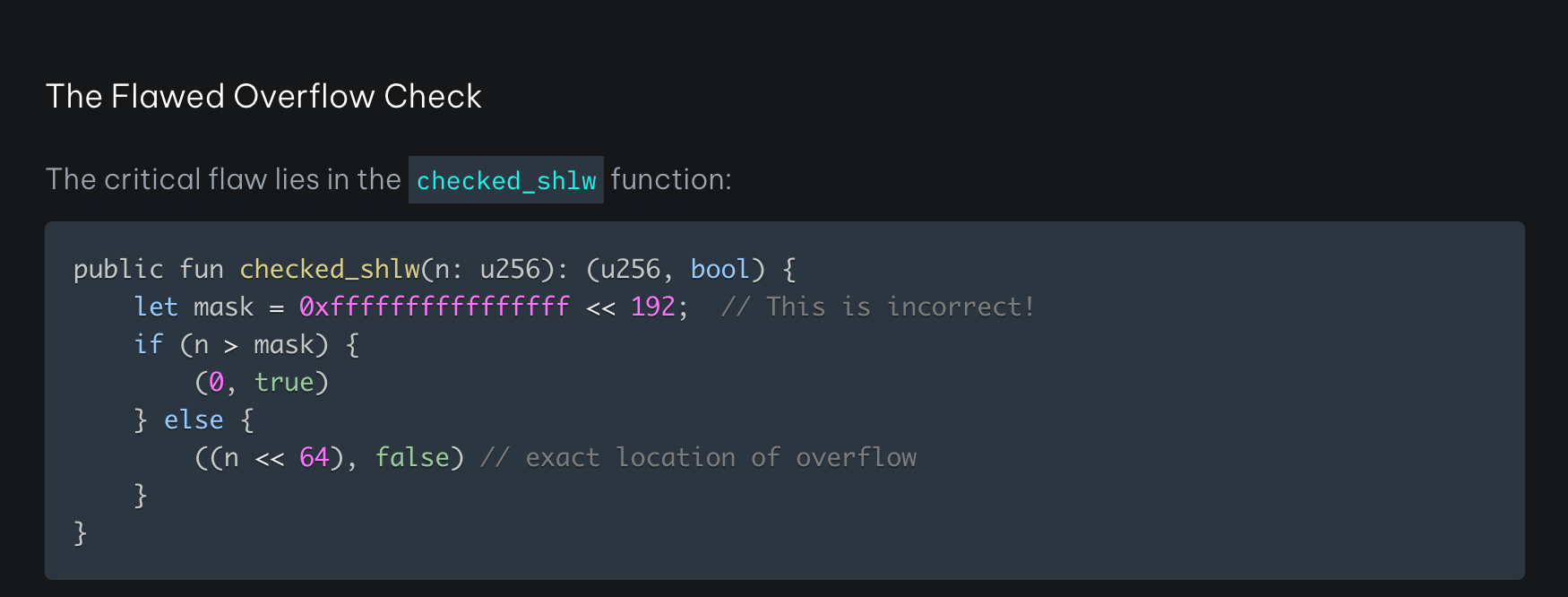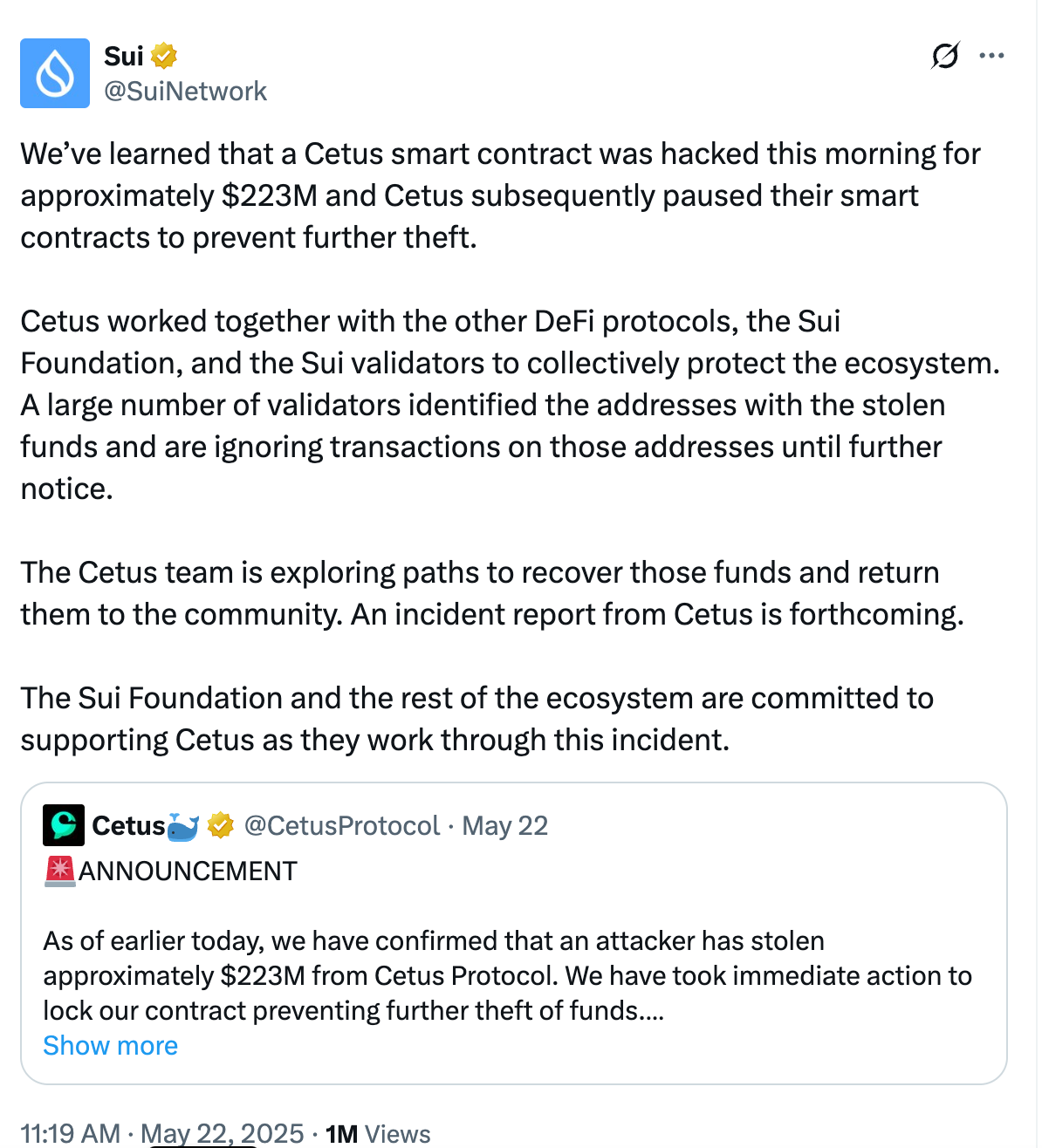
Cetus Hack: A Liquidity Parameter Exploit
The Cetus decentralized exchange (DEX) suffered a major blow in May, losing $223 million in a sophisticated hack. Now, blockchain security firm Dedaub has released a post-mortem report detailing the attack, revealing a vulnerability that highlights the ongoing security challenges within the decentralized finance (DeFi) space.
The report pinpoints the root cause of the hack as an exploit of Cetus‘ automated market maker (AMM) liquidity parameters. The hackers leveraged a flaw in the most significant bits (MSB) check, enabling them to manipulate liquidity parameter values by substantial orders of magnitude. This allowed them to establish large positions with minimal token input, ultimately draining pools containing millions of dollars.
“This allowed them to add massive liquidity positions with just one unit of token input, subsequently draining pools collectively containing hundreds of millions of dollars worth of tokens.” – Dedaub Security Researchers

Decentralization vs. Security: A Complex Balancing Act
In the aftermath of the hack, Cetus and the Sui Foundation, the blockchain network on which Cetus operates, took a controversial step. Sui network validators froze a majority of the stolen assets, preventing the hackers from fully profiting from their actions. This decision, while seemingly protecting users, ignited a fierce debate within the crypto community about the tension between decentralization and security.
Critics argue that the freezing of assets undermines the core principles of decentralization, effectively transforming the network into a permissioned database. They believe that such actions erode the very foundations of blockchain technology, which champions censorship resistance and user autonomy.
“Sui validators are actively censoring transactions across the blockchain. This completely undermines the principles of decentralization and transforms the network into nothing more than a centralized, permissioned database.” – Twitter user
Proponents of the decision emphasize the need to protect users and mitigate further damage. They argue that, in a situation where a significant portion of user funds are at risk, immediate action is necessary, even if it temporarily compromises decentralization ideals.
The Cetus hack and the subsequent response serve as a stark reminder of the complex challenges facing the crypto and Web3 industries. While decentralization remains a cornerstone of the movement, it’s becoming increasingly clear that finding effective solutions to security vulnerabilities, especially in the face of sophisticated attacks, requires a nuanced and ongoing conversation.
The industry continues to grapple with the balance between decentralization and security, highlighting the need for developers to prioritize robust security measures and for the community to engage in thoughtful discussions about the role of centralized interventions in protecting users and maintaining network integrity.



